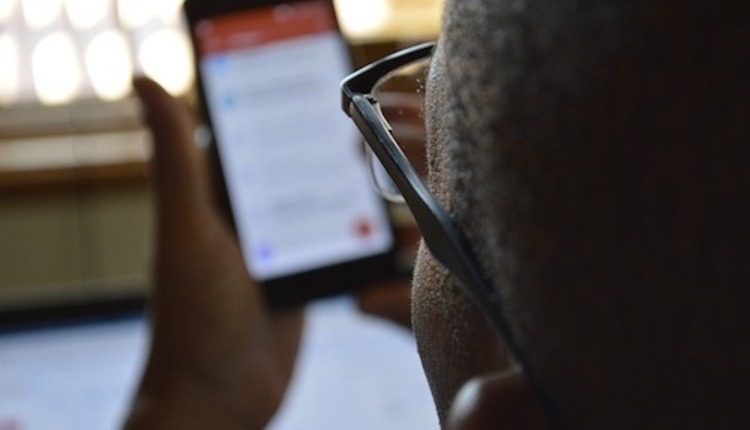There's plain sight, and then there are the most powerful thoughts that can steer and redirect the course of a business: insights! Hindsight is valuable. It's the reassessment of the relationship when a client opts to throw in the towel. "In hindsight, I shouldn't have pressed him as hard or reprimanded him when he slacked off." That hindsight can serve you in learning from mistakes.
Plain sight is the process of seeing and utilizing the obvious, although it might have initially been ignored due to misdirected focus. It's the sudden awareness of the pot-bellied traffic that heads throughout the day toward the seated abdominal machine. "These prospects were in plain sight, but I just never recognized the opportunity."
Insight is harder to define. It's a thought that serves as a revelation or a sort of clearing away of a cloud of smoke. It's a new perspective that comes over you in a moment, a new paradigm that changes your view of the playing field. It's the moment you realize that you're hurting yourself and your business by catering more to your clients' schedules than your own. It's the appearance of the thought that says, "You don't have to control your clients' actions if you empower them, and in order to empower them, you have to be paid, not for the workout but for your time."
I'm flattered to have been interviewed many times about the "success" that I've achieved. I could re-frame each of those interviews, not as questions about success but as questions about failures and insights, as the only real key to my career growth has been my undying willingness to challenge convention, to assess the outcomes and to gather, appreciate and respect the insights that showed up along the way.
Do You Need More Education?
Assuming you're already a competent trainer with an adequate knowledge of human performance, anatomy, kinesiology and training protocols, you don't need anything else to be successful. I'm not suggesting you stop learning, not by any means, but I've seen first-hand the "one more certification" mentality that drives too many trainers to pursue ongoing technical knowledge in quest of a financial return.
Consider this. You already have all the tools you need (staying with my previous assumption). You now need actions, insights and better actions to propel you to the place you presently dream of. As I've shared countless times, the formula is simple: Get clients, train clients, get paid. And, of course, "thrill clients" goes without saying.
I've heard that in order to grow, I must continue to stay abreast of new developments. I disagree. I believe it's valuable to stay abreast of new developments, but if a trainer knows how to help a client improve his or her body, new developments simply offer new potential options. They are not a need. Conversely, I'd suggest that even with new information, without insights, growth potential is stifled.
Here's where the contradictors will find reasons to criticize my words: "Phil says we shouldn't learn any more." I'll address that with a proverb I adopted as an insight: "To avoid criticism, be nothing, do nothing, say nothing."
I'll also respond to the not-yet-real-but-certain-to-exist accusation by explaining that I applaud learning. I myself am an eternal student with a hunger to know more. My assertion isn't that learning is limiting but that a quest for knowledge without recognition of how to maximize that which you already possess is not going to suddenly springboard you to higher levels of success.
Five Crucial Insights
I'd like to share and briefly discuss five distinctive insights that have served to better my own ability to get clients, train clients, get paid and thrill in the hope that they may reinforce my point and serve you:
Insight #1:If I'm not paid for my time, I sacrifice my ability to deliver results or my ability to eat. I made the mistake for years. The free consultations, the free assessments and the "it's okay if you pay me next week" permissiveness all contributed to hunger. I ate the Subway subs before Jared made it fashionable. They had a six-inch tuna sub for about two dollars. Dinner was at the local pub happy hour. You could nurse a one-dollar beer and eat the ziti and wings. As my friends were establishing careers and enjoying steak and champagne, I knew I had to change or starve. I opted to change.
I called myself a fitness professional, yet the other "professionals" I knew were being paid for all of their consultations and their services. I also felt frustrated, in that the time I was paid for was limited to workouts. If I were to promise results, I needed to find a way to tie in an ability to just talk about lifestyle shifts that I knew were vital for results, and I knew this too would require compensation if this was going to really lead to a career.
I put a pen to paper and calculated, at $35 per hour, how much money I sacrificed by giving away my time. It was staggering. I instantly gave myself a $10,000 raise by simply deciding I would never again conduct the service I hoped to charge for without compensation. I then kicked things up another $10,000 by charging for my time, whether it was time spent in discussion, using calipers or directing an exercise session.
Insight #2: If I fail to control my calendar, my entrepreneurial spirit has led me to have 20 bosses who abuse my time. When I started my personal training business, I believed I was in business for myself. Prior to the entrepreneurial leap, I had one boss. In a stressed-out moment of overwhelm, on the brink of burnout, trying to keep up with 20 clients' ever-changing schedules, I had the realization: I'm more of an employee than ever before. Rather than being at the beck and call of a single boss, I allowed every client to own my time. The overwhelming experience led me to an escape, a couple of days isolated in a friend's beach house, where I designed my ideal calendar. Three short months later, I was living the ideal.
The most powerful ability I took from that escape was the ability to say "no." I thought, for some odd reason, that if a client can only train at 7:00 PM, I was obligated to affirm the time as an appointment. As soon as I learned to say "that time doesn't fit into my calendar," a miracle occurred: My clients suddenly became flexible.
Insight #3: Nobody wants a personal trainer. I thought flyers and business cards were going to build my business. I put them on counters in retail stores, posted them in strategic places and on bulletin boards all over town. I waited for the phone to ring. My flyers all featured my picture, my credentials and, in big bold text, the words "Personal Trainer." As much as I hated selling, I knew I had to supplement the inadequate return my flyers were bringing. I knew I had to reach people, so in those rare moments when I could summon up the courage, I'd ask, "Would you like a personal trainer?" Needless to say, I wasn't an overnight success. It was only after an accidental meeting with a psychologist, a scientist adept at human influence, that I realized the mistake I was making. I was simply a vehicle, not an outcome.
Nobody wants to run on a treadmill. People, however, are willing to run on a treadmill to burn fat. What they really want is to burn fat. Nobody wants to change a light bulb. What they really want is to illuminate a room so they avoid walking into coffee tables and walls. Nobody wants a personal trainer. They want a change — a physical change. That now-obvious insight instantly taught me to change my communication, and uncomfortable "selling" become enjoyable persuasion. I learned to speak and use the language of benefits and to promote my services with the discussion of outcomes, and rejection quickly became embrace.
Insight #4: Mastery of personal training without mastery of influence is like having the keys to the Lamborghini but not having access to fuel. You can unlock the door, but you can't get very far. I was good at assessing. I was good at prescribing exercise. I was good at providing tips and suggestions. Why, then, did I struggle to retain clients? Why was I limited in my ability to turn interest into commitment? I thought if I earned another certification, took another speed training workshop or learned new strategies for making exercise fun, I'd find career growth simpler. It wasn't until I went beyond speaking the language of benefits and recognized that my primary function is to influence people to act, move forward, commit and re-commit that I felt a new comfort level. That comfort level turned into confidence, and that confidence turned into an unconditional guarantee of results.
The wake-up call came when I attended a sales seminar — a seminar, believe it or not, teaching an audience of copier salespeople to sell. I realized there's an entire science not typically taught in personal training circles, a science that would provide me a new power to ignite interest, fuel continued passion and guide clients to desired outcomes. That single seminar led me to a new world of study, a study of human influence, a study that is every bit as valuable as my studies of anatomy, kinesiology and physiology — a study that turned a struggling trainer into a success.
Insight #5: "I told him" and "he heard me" are two mutually exclusive concepts that at times overlap. Ditto for "he heard me" and "he understood me." Teaching is an art, and as fitness professionals, we have a responsibility to teach. I used to make the mistake of allowing anger to blur my vision. An angry annoyance would rise up when a client failed to follow my advice. I remember my client Dave doing a verbal tap dance in an effort to tell me what he ate, as instead of relying on honesty, he was trying to figure out what the right answer was. I had told him how the foods he was eating prior were affecting him. I had told him how athletes eat for fuel and how my clients have learned to eat to speed metabolism. I had explained the relationship between protein and tissue growth, between slow-release complex carbs and energy and between fiber and optimal use of nutrients.
When my clients failed to follow the advice I provided with the best of intentions, I would get offended, until that moment with Dave. I realized, while I previously believed everything I explained was crystal clear, this was new to him. He had gone through the last ten years enjoying martini lunches and huge late-night eating orgies. This "simple change" was anything but simple for him; he simply didn't understand. I changed the focus instantly. We spoke only about breakfast, and for three weeks, we worked together to make breakfast a habit. Today, Dave is in the best shape of his life, and his lunch and dinner are supportive as well.
Insights have shaped my career, and most insights only arrived after chains of mistakes or missteps. I'll refer you to a book I read, a book written by one of the top advertising copywriters in the world. I had the privilege of working for BBDO advertising agency immediately after college, and Phil Dusenberry was the company superstar. He was a regular guy with a desire to share, and I enjoyed listening to him offer advice. Then We Set His Hair on Fire is a book Dusenberry wrote about insights. It isn't a fitness book. It's written about his experiences in advertising, but if you're looking to grow outside of the box our industry provides, you might find it an insightful read.
Phil Kaplan is the author of Personal Training Profits and a Secure Fitness Future and the e-program, Change Your Mind, Change the World. Respond to Phil's arguments by emailing him at phil@philkaplan.com, or visit philkaplan.com for more information.












